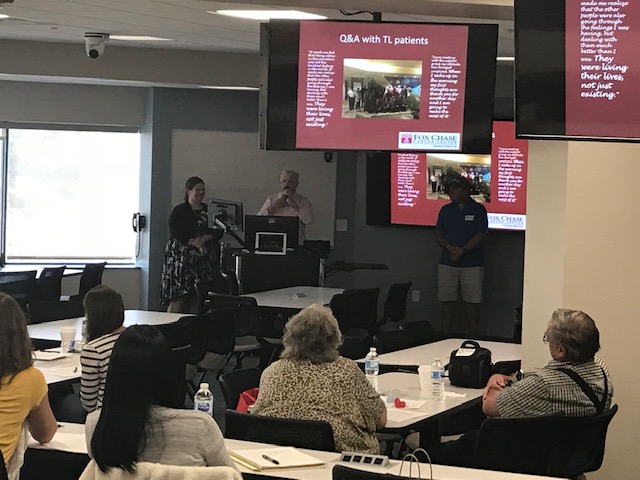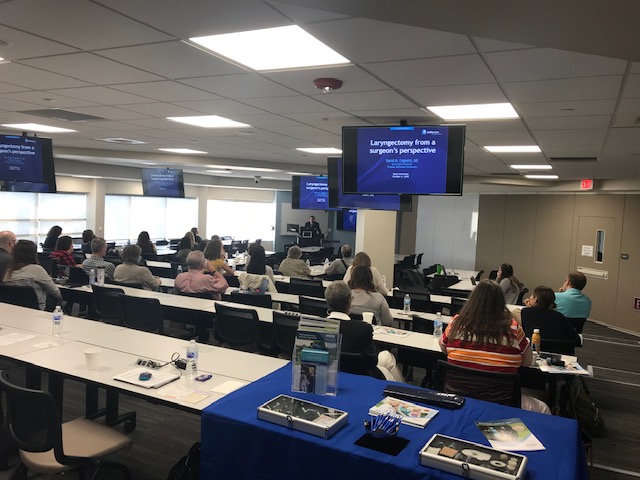SLI Hosts Series of Interdisciplinary Education Workshops
 The Speech-Language Institute (SLI) of Salus University recently wrapped up a three-part series of interdisciplinary workshops over the course of three weeks for patients, speech-language pathologists and other healthcare providers.
The Speech-Language Institute (SLI) of Salus University recently wrapped up a three-part series of interdisciplinary workshops over the course of three weeks for patients, speech-language pathologists and other healthcare providers.
The first workshop focused on intervention and treatment strategies for clients dealing with the effects of Parkinson’s disease. The class was taught by Josefa Domingos, a trained physiotherapist from Radboud University Centre in the Netherlands and John M. Dean, MA, CCC-SLP, a speech-language pathologist & Parkinson’s disease specialist from Portugal.
Participating clinicians were given the opportunity to demonstrate their newly acquired therapy skills on volunteer patients.
“There was the actual workshop portion where we learned various skills then there was the patient portion, where clients came in and we were able to put into practice the skills that we learned,” said Robert Serianni, MS, CCC-SLP, director of SLI.
The second workshop brought together speech-language pathologists, healthcare providers, students, educators, patients who have undergone larynx surgery (laryngectomees) and their caregivers.
The workshop was led by Amy Lustig, PhD, CCC-SLP, SLI clinical educator and facilitator of Speakeasy - a support group for laryngectomy and throat cancer survivors and their caregivers. The day-long class featured patient-centered presentations on innovative treatment options and a panel discussion where head and neck cancer survivors spoke firsthand about their experiences.
 “Our presenters shared information and personal insights on handling the consequences of head/neck cancer and managing communication and swallowing during and after treatment,” said Lustig.
“Our presenters shared information and personal insights on handling the consequences of head/neck cancer and managing communication and swallowing during and after treatment,” said Lustig.
The series wrapped up with one final workshop taught by representatives from Abington-Jefferson Health. The class focused on assessment skills needed to treat patients with dysphagia and other swallowing disorders.
Along with patient videos, attendees were also introduced to a newly developed app that would allow for more thorough and concise client evaluations under the premise that evaluations means better care for patients.
All three workshops provided attendees with hands-on skills and gave patients the opportunity to share their experiences.
“In all, I would say that these series of workshops proved to be very successful and it was a two-fold benefit,” said Serianni. “Our clients were involved in sharing their personal stories and our SLPs gained enhanced knowledge to provide even better care.”